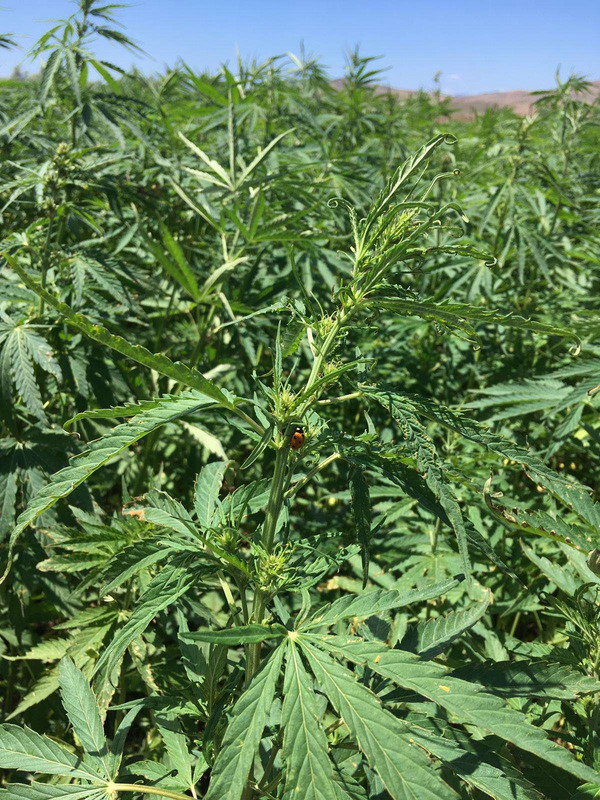♫ Hemp, I need some market.
Hemp, not just any market.
Hemp, now we know the market, hemp ♫
Hemp (Cannabis sativa L.), which can contribute to seed, oil, fiber and medicinal product markets, is currently the object of an agronomic and industrial rediscovery after more than 50 years of neglect. It is one of the oldest non-food crops worldwide. However, hemp production and use has progressively declined during the 20th century due to the competition with cotton and synthetic fibers and drug phobia. Traditionally, hemp breeding as well as agronomic techniques used to cultivate hemp were designed for the production of textiles and ropes and less for food/feed uses. Because there was less interest in hemp, it was not subject to the intensive agronomic and breeding research and development that drove the improvements in other crops over the last 50 years.
Recently, interest in this crop was once again stimulated by novel value chains. Moreover, from an agronomic point of view, the interest in hemp was strengthened by the fact that it requires low inputs, it can be integrated in a crop rotation to increase pest and disease resilience, and it has a very positive impact on the environment and soil structure.
Although it still remains a niche market, the area of hemp cultivated in Europe and worldwide has increased exponentially in the last years due to its multiple end uses (fibre, flowers, grains). A growing demand for hemp products by the food market is one of the key drivers. In Southern Europe, the increased commercial interest for hemp in food products and a somewhat clearer legal status have stimulated a shift toward cultivation of hemp seeds as the main yield instead of biomass.
In this context, DiverIMPACTS case study 9, which is carried out in Sicily by FIRAB and CREA to diversify wheat-based farming systems, has identified hemp as a promising option at both the agronomic and economic levels. The Sicilian case study benefits from the involvement of pioneer farmers who have experimented with the production and processing of hemp in Sicily for a few years. They make hemp products that are mainly sold in niche markets, which promote local and healthy food. The potential development of marketing channels for hemp-based food products from Sicily should therefore be explored in order to determine the extent to which hemp production can be promoted and developed.
To support this innovation, a study on the potential of value chains for Sicilian hemp-based food products was rolled out from March to June 2019 by the Université catholique de Louvain, in collaboration with FIRAB and CREA. The study mainly focuses on the potential of value chains for hemp-based food products, especially hemp oil and flour.
Hemp oil offers a high nutritional value and is of interest from a gastronomical and nutraceutical point of view. Integrating hemp flour in pasta also seems to be interesting in terms of nutritional and food diversification. Additional opportunities exist such as blending hemp flour for bread and pastries or using hemp flowers to complement hops in beer.
The study provides information on
- marketing opportunities, through benchmarking of hemp-based food products and pricing in a number of EU countries,
- marketing strategies and the possibilities of nutritional claims, and
- an analysis of relevant processing and market development in Sicily.
The study mainly refers to organic products as the involved case study actors operate under organic certification.
Further information
The full study is available here: https://zenodo.org/record/3477906#.XcBG2ZJKiUl

 Souhaitez-vous ajouter le site web à l'écran d'accueil ?
Souhaitez-vous ajouter le site web à l'écran d'accueil ?
Disqus
Pour pouvoir utiliser la fonction de commentaire, vous devez vous inscrire auprès du fournisseur tiers "Disqus".
Lorsque vous activez cette fonction, votre navigateur établit une connexion directe avec les serveurs du fournisseur tiers. Nous attirons votre attention sur le fait qu’après l’activation, des données seront transmises au fournisseur tiers et que ce dernier pourra, le cas échéant, déposer des cookies, qui peuvent notamment être utilisés à des fins d’analyse et de marketing. Pour plus d’informations, veuillez vous reporter à notre déclaration de protection des données.
Activer